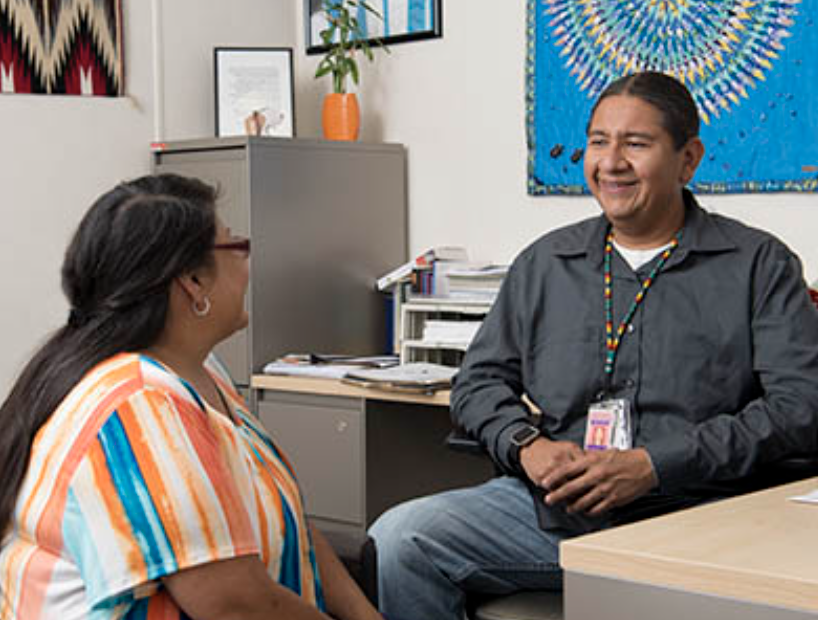
- Details
- By Levi Rickert
Opinion. The U.S. Supreme Court’s June 6 ruling on Becerra, Secretary of Health and Human Services, et al. v. San Carlos Apache Tribe suit was lauded as a victory for tribes and tribal organizations across Indian Country.
In the case, the court ruled tribes are entitled to reimbursement for indirect costs incurred in providing services, regardless of whether those services were paid for by the Indian Health Service (IHS) or other sources.
In essence, the Supreme Court ruling says the federal government must pay more for Native Americans' health care. Within the federal government, the IHS — which falls under the U.S. Health and Human Services Department — is the agency that will have to pay for Contract Support Costs (CSC) under the Indian Self-Determination and Education Assistance Act (ISDA).
The ruling determined that ISDA provides Native American tribes the option to enter into a contract with the IHS to run their own health-care programs, which the IHS would otherwise manage.
The Supreme Court found that,
- ISDA requires IHS to pay the contract support costs that a tribe incurs when it collects and spends program income to further the functions, services, activities, and programs transferred to it from IHS in a self-determination contract. […] The Government’s arguments to the contrary find no support in ISDA’s text. […] A contrary reading of the statute would impose a penalty on tribes for opting in favor of greater self-determination.
Tribes can also collect money from outside programs like Medicare, Medicaid, and private insurers.
A week after the Supreme Court’s decision, IHS Director Roselyn Tso (Navajo) sent a “Dear Tribal Leader” letter, indicating the agency plans to have a tribal consultation by August 2024 to get their feedback and recommendations to ensure the agency is able to modify its processes to implement the ruling.
The historic decision was indeed a victory for tribes; however, it presents a serious problem because the IHS has been historically underfunded since it was established in 1955 — especially when compared to other federal health programs. The latest available figures from the Government Accountability Office (GAO) show that in 2017, per capita spending for IHS was $4,078. By comparison, the per capita spending was $13,185 for Medicare; $10,692 for the Veterans Health Administration; and $8,600 for federal prisoners.
Now, with the Becerra ruling, IHS is faced with another challenge. During the HHS’s oral arguments before the Supreme Court in March, it was estimated the ruling would cost IHS an extra $800 million to $2 billion per year. So unless the Congress appropriates more funding to the IHS, there will likely be a reduction of services delivered to Native Americans, who already face extreme health disparities when compared to their white counterparts.
The IHS, tribes and Native advocacy groups like the National Indian Health Board have for years advocated that contract support costs and 105-L lease costs be transitioned to “mandatory” spending so it would not disrupt the rest of the IHS annual budget.
“In recognition of the potential budgetary impact of the Court’s decision, we urge Congress to act on the fiscal year (FY) 2025 President’s Budget proposal to shift the IHS budget from discretionary to mandatory funding starting FY 2026 to protect the overall appropriation for the IHS and create more adequate and stable funding into the future,” Tso wrote in her tribal leader's letter.
There has been some progress, but not enough to solve the underfunding of critical services in Indian Country. This past Thursday, the House Appropriations Committee, under the chairmanship of Rep. Tom Cole (R-OK)—a tribal citizen of the Chickasaw Nation—proposed increasing the IHS budget by 23% in the FY 2025 Interior, Environment, and Related Agencies appropriations bill.
The proposal would provide $5.3 billion for services, $851 million for facilities, and $2.45 billion for contract support costs and 105-L lease payments.
While this legislative proposal is welcome news, it still does not address the need for Native American healthcare to be mandatory funding versus discretionary.
Native Americans throughout Indian Country should contact members of Congress and ask for mandatory funding for IHS.
Thayék gde nwéndëmen - We are all related.
More Stories Like This
The SAVE America Act Threatens Native Voting Rights — We Must Fight BackThe Presidential Election of 1789
Cherokee Nation: Telling the Full Story During Black History Month
Jesse Jackson Changed Politics for the Better
Native News Online at 15: Humble Beginnings, Unwavering Mission
Help us defend tribal sovereignty.
At Native News Online, our mission is rooted in telling the stories that strengthen sovereignty and uplift Indigenous voices — not just at year’s end, but every single day.
Because of your generosity last year, we were able to keep our reporters on the ground in tribal communities, at national gatherings and in the halls of Congress — covering the issues that matter most to Indian Country: sovereignty, culture, education, health and economic opportunity.
That support sustained us through a tough year in 2025. Now, as we look to the year ahead, we need your help right now to ensure warrior journalism remains strong — reporting that defends tribal sovereignty, amplifies Native truth, and holds power accountable.
 The stakes couldn't be higher. Your support keeps Native voices heard, Native stories told and Native sovereignty defended.
The stakes couldn't be higher. Your support keeps Native voices heard, Native stories told and Native sovereignty defended.
Stand with Warrior Journalism today.
Levi Rickert (Potawatomi), Editor & Publisher


